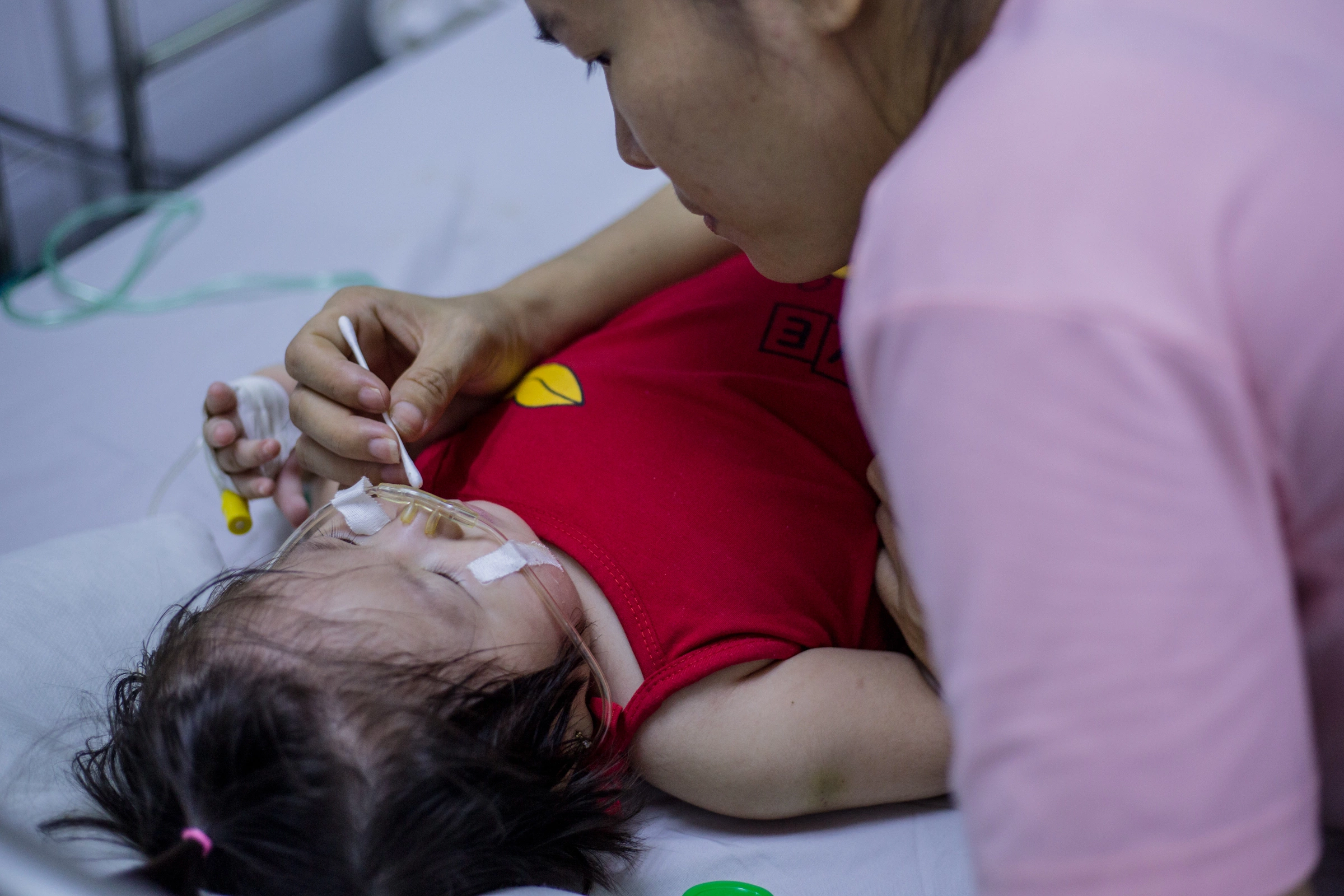"Antibodies passed from mother to fetus play an important role in protecting newborns in the early stages, when the baby's immune system is still immature," said Associate Professor, Doctor Huynh Nguyen Khanh Trang, Head of Obstetrics, Hung Vuong Hospital, and Head of the Obstetrics Department at Pham Ngoc Thach University of Medicine, on the sidelines of a conference on respiratory infectious diseases on 21/9.
 |
Associate Professor, Doctor Huynh Nguyen Khanh Trang at the conference on respiratory infectious diseases on 21/9. Photo: My Nguyen |
During this time, newborns are susceptible to respiratory and digestive tract infections, which are common in Vietnam due to the tropical monsoon climate. Among them, respiratory syncytial virus (RSV) is a leading cause of upper and lower respiratory tract infections such as bronchiolitis and pneumonia, which are especially dangerous in newborns. According to the World Health Organization, RSV causes more than 3.6 million hospitalizations and about 100,000 deaths in children under 5 years old each year. Notably, 80% of hospitalizations and half of the deaths occur in children under 6 months of age—the stage when the immune system is still underdeveloped.
A study in Ho Chi Minh City showed that RSV accounts for 50-90% of bronchiolitis cases and 5-40% of pneumonia cases. In Hanoi, the infection rate of this virus is also very high, accounting for 60-70% of children hospitalized for respiratory illnesses at Hanoi Children's Hospital and nearly 30% at Vietnam - Cuba Friendship Hospital. RSV not only causes acute illness, but many studies have shown that it can affect long-term health, increasing the risk of asthma, chronic wheezing, and impacting the child's physical and intellectual development.
 |
Patients being treated at Children's Hospital 1. Photo: Thanh Nguyen |
To protect children and prevent respiratory illnesses during infancy, experts recommend maintaining personal hygiene, ensuring a balanced diet, and closely monitoring the child's health. In addition, it is necessary to supplement with scientifically proven measures to strengthen antibodies, protecting children against respiratory pathogens such as influenza virus, RSV, coronavirus, adenovirus, and rhinovirus.
"Vaccinating pregnant women not only protects the mothers themselves but also helps transfer antibodies to their children, creating an immune shield right from birth," said Associate Professor Trang. This view is based on global scientific studies, emphasizing the role of passive immunity in reducing the risk of serious respiratory illness in newborns. Large-scale clinical trials from many countries have demonstrated that this mechanism helps reduce the risk of severe illness requiring medical intervention in the first months of a child's life.
Associate Professor Trang hopes that with the coordination between the Ministry of Health, obstetrics and pediatric hospitals, and international support, Vietnam can apply science-based pregnancy vaccination solutions to protect children from birth. Vietnam currently has many advantages, such as the Expanded Program on Immunization covering from the central to the grassroots levels, and experience in deploying pregnancy vaccines such as Tdap for tetanus-diphtheria-pertussis, influenza, and Covid-19. However, there are still some challenges such as cost and public awareness, requiring coordination between health agencies and international organizations to improve health education.
Le Phuong












